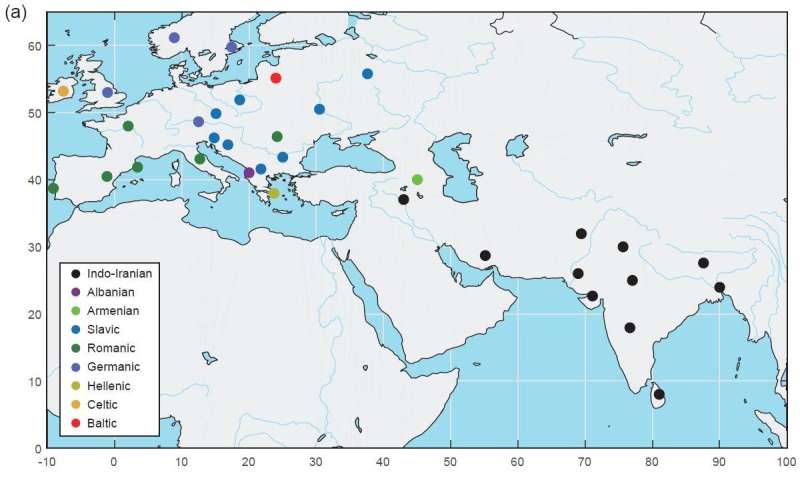Mother tongue versus father tongue—a new study reconciles the two hypotheses

Does the mother or father have a stronger influence on their children's language? The mother tongue hypothesis suggests that language usage follows matrilineal inheritance. The father tongue hypothesis holds that paternal lines dominate the local language in an already populated region, which was proposed based on other genetic and anthropological research.
A team of researchers led by population geneticist Li Jin found that in Indo-European populations, the paternal lineages (Y-chromosome) were correlated to the vocabulary (lexicon) of their languages, while the maternal lineages were associated with pronunciation (phonemes). For the study, the authors explored the genetic-linguistic relationship of 34 populations speaking different Indo-European (IE) languages. They assembled compositions of the Y-chromosomal and mtDNA haplogroups or paragroups from these IE populations, which reflect paternal and maternal lines, respectively. These haplogroups or paragroups were defined using stable mutations that all developed in the Paleolithic Age (over 10,000 years ago). For comparing the IE languages, the basic word list and phonemic inventory they used reflect the vocabulary system and sound system in a language, respectively.
The team found that that the change in lexicon reflects the differences in paternal lines, while phonemic dissimilarity reflects the differences in maternal lines, after removing the effect of geography. Such observations of unbalanced correlations were consistent with differently sized lexical datasets, and were successfully evaluated for their robustness based on alternative statistical approaches.
Dr. Menghan Zhang, the first author of this paper indicated that the unbalanced correlation between genetics and linguistics can be explained by male-dominant population contact, and the strategy of language learning by local females, which is similar to second language acquisition.
The authors note that this study was on the basis of correlation analysis, but not causal inference. However, they also proposed one hypothetical scenario of language evolution that fathers could affect the usage of words, while mothers could pass down pronunciations. The research was published in the National Science Review.
More information: Reconciling the father tongue and mother tongue hypotheses in Indo-European populations, DOI: 10.1093/nsr/nwy083
Provided by Science China Press




















